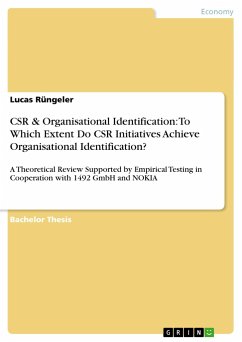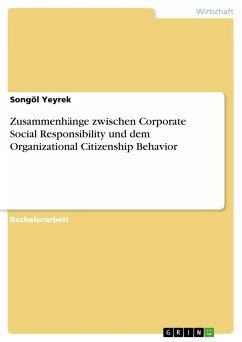Bachelor Thesis from the year 2009 in the subject Business economics - Business Ethics, Corporate Ethics, grade: 1,0, University of Bayreuth (Institut für Philosophie), language: English, abstract: Since organisations become larger, complex and boundary-less, organisational identification is viewed as a means for providing cohesion and as key ingredient of organisational success. According to Bhattacharya and colleagues the individuals' identification with the company results into several positive effects, such as cooperative behaviour, less employee turnover due to higher satisfaction, as well as having strong human capital in terms of knowledge and skills. At the same time a study by Carmeli and colleagues suggests that the corporate social responsibility (CSR) of a company is positively associated with the employees' identification.On that score the theoretical analysis of the thesis will reconstruct this correlation by referring to three distinct processes, in particular affinity, emulation, as well as categorisation and self-enhancement, that describe the emergence of organisational identification of employees. Finally, it will be discussed in how far CSR initiatives may serve as a driver to trigger off the three processes.
Hinweis: Dieser Artikel kann nur an eine deutsche Lieferadresse ausgeliefert werden.
Hinweis: Dieser Artikel kann nur an eine deutsche Lieferadresse ausgeliefert werden.








